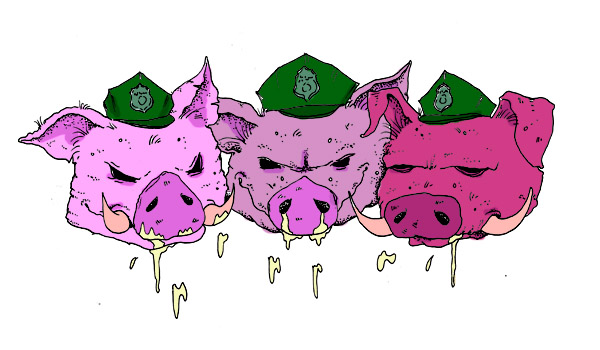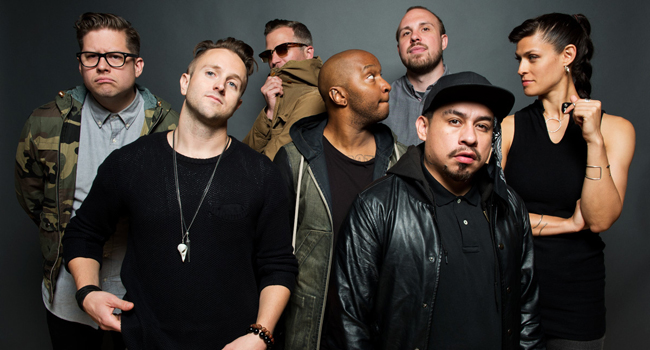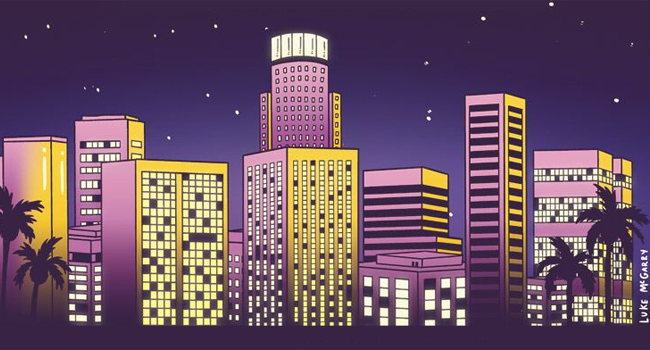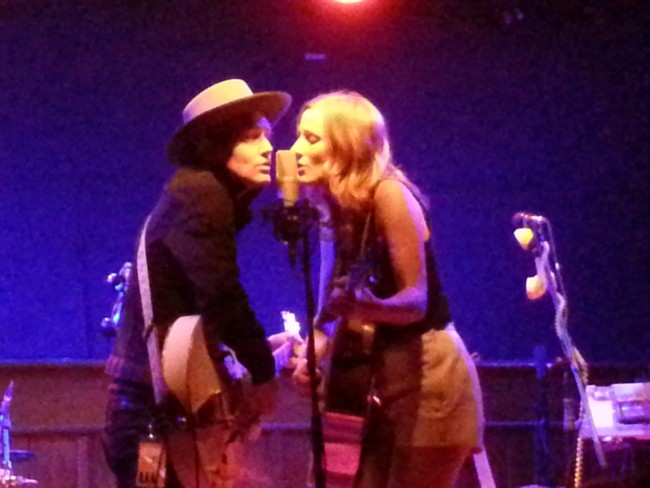In 1962, Bob Dylan debuted his song “The Death of Emmett Till.” In it, he makes a strong statement about justice and equality—specifically, that we have neither as citizens of The United States of America. And, over 50 years later, the nation’s politics are more or less the same. Although we have seen marked forward momentum in many regards, it only takes one questionable verdict or one crooked cop to send us a few steps back. As long as there is still progress to be made, there will likewise be great musicians to protest and comment on the country’s present state of (in)justice and (in)equality. Given recent events, perhaps some refreshing critical perspective is just what we need. Here are seven protest songs about police, all released within the last 15 years.
“American Skin,” Bruce Springsteen (2000/2014)
Despite his painfully patriotic image, Bruce Springsteen is no stranger to political commentary. In fact, his hugely popular song “Born in the U.S.A.,” immediately recognized by its ass-kicking, flag-waving chorus, is in reality a dark and profoundly critical portrayal of American life. “American Skin,” debuted in 2000 on Springsteen’s Live in New York City release, is decidedly less ambiguous. The song foregoes irony to draw attention to the nation’s racial divide in a very clear and honest way. The repeated phrase “41 shots,” is a reference to the police shooting of Amadou Diallo in 1999. The song was reintroduced in 2012 following the shooting of Trayvon Martin, and a studio version made its way onto his album released earlier this year, making “American Skin” a persistently (and unfortunately) relevant commentary on the country’s hostile sociocultural climate. —Tory P-Lopez
“New York City Cops,” The Strokes (2001)
Analyzing The Strokes’ lyrics may be an exercise in futility. The agenda of the band’s 2001 album Is This It is concealed well enough that its existence in the first place is something to be debated. Singer Julian Casablancas has the attention span of a goldfish, with new ideas being introduced every verse, if not every line, and with no apparent link between them. The album’s ninth track “New York City Cops” does nothing to combat this impression—its concise chorus “New York City cops/They ain’t too smart” comes off as an unprovoked insult in what would otherwise be a song about a one-night stand. Unlike the other entries in this list, “New York City Cops” does not attempt to send a message or tell a story. Rather, it (along with much of The Strokes’ work) captures the essence of angsty, rebellious youth. It protests police not because of any specific fault but simply because they are conceptually at odds with the moral compass so many of us adopt as teenagers, one which The Strokes themselves may not have grown out of. The band plays with a rowdiness and practiced carelessness that expresses this attitude perfectly. And, as vague as the song’s lyrics may be, the mocking, aggressive tone presents itself with surprising clarity. If ever anyone were to wonder how smart the police officers of New York City are, they need not look any further. —Tory P-Lopez
“Hate the Police,” Mudhoney (2002)
Originally released by The Dicks in 1980, “The Dicks Hate the Police” is a blistering indictment of police officers that doesn’t pull any punches, opening with the lyrics, “Mommy, mommy, mommy / Look at your son / You might have loved me / But now I’ve got a gun / You better stay out of my way / I think I’ve had a bad day.” In ’89, Mudhoney covered the track (shortened to “Hate the Police”) on an EP that also included the breakout single “Touch Me I’m Sick,” and it’s since been included on the retrospective compilation albums Superfuzz Bigmuff Plus Early Singles and March to Fuzz, released 10 years apart. Sadly, “Hate the Police” has rung true since its inception more than 30 years ago. Perhaps in another 30 years, the line about “niggers and Mexicans” won’t hit home quite so hard. One can always hope. —Hannah Lorenz
“Police Story,” Dirty Projectors (2007)
Conceived as a formal experiment to re-write Black Flag’s Damaged from memory, Dirty Projector’s 2007 album, Rise Above, is a strange, sometimes difficult outlier in the band’s discography, but it has a political resonance that transcends its studied musical flourishes. Through a thematic interpolation of Black Flag’s gnarled-fist landmark, The Dirty Projectors prove that Black Flag’s success isn’t limited to their jaggedly imploding riffs and temper-tantrum delivery. Dave Longstreth may not have the endless reserves of bile that propel Henry Rollins, but his low-brow/high-brow marriage of acidic lyrics and fluttering avant-jazz reveals something profound about our conflicted relationship with the police.These lyrics are universal whether they’re coming from someone who looks like America’s stereotype of a skinhead or a gawky art-student. In a time where violence erupts for reasons as basic as appearance and perception, “Police Story” is a rallying call for the people who feel frustrated with the seeming dead ends of police corruption and brutality. —Michael Snydel
“Doorstep,” tUnE-yArDs (2011)
An interesting thing happens when police kill unarmed black men (or women) in this country: The victim is subject to a posthumous witch hunt, and every past transgression becomes justification for the killing. In Michael Brown’s case, he stole some cigars and committed the heinous crime of flashing a peace gang sign one time. In the wake of Michael Brown’s death, the same thing happened that always happens—a human being was reduced to a rap sheet. It’s never openly stated, but the message is clear: He deserved to die. But “Doorstep,” from tUnE-yArDs’ 2011 album w h o k i l l, does the opposite. Merrill Garbus, the mastermind behind the jazz/pop hybrid act, vaguely hints that her “baby” was involved in crime, but to her, that was a blip on the radar. “I felt my first joy in life with my head on his chest,” she sings. The common refrain says it all: “Don’t tell me the cops were right in a wrong like this.” —Hannah Lorenz
“Freedom for a Policeman,” Chad VanGaalen (2011)
Canadian genre-bender Chad VanGaalen has always been most comfortable in extremes whether he’s playing pixie-dust folk, reverb-swallowing psych or minimalist post-punk (one of VanGaalen’s biggest claims to fame is working boards for defunct swamp punks Women), and “Freedom for a Policeman” is no exception to VanGaalen’s manic impulses, but underneath its kooky tribute to Nuggets and almost “Freebird” aping chorus, there’s a genuine ghastliness to the subject matter. Adding to confusion of intention, “Freedom for a Policeman” is unusually lyrically grounded for VanGaalen, absent of the David Cronenberg-esque body horror that usually populate his songs, but still dizzy enough to make a refrain out of the disgustingly beautiful line, “All your lights are beautiful / As you’re bashing in my skull.” Propelled by a Wurlitzer and a prehistorically primal riff that together sound like a runaway tilt-a-whirl, it’s never quite clear whether it’s a one-off boogie or a legitimate engagement with the issue of police brutality, but kiss-offs to authority rarely sound this lucid and buzzed at the same time. —Michael Snydel
“Police,” The Blisters (2013)
Believe it or not, there is one positive aspect of the Ferguson shitshow—a harsh light is being shed on abuse of police power across the country. “Police” by Chicago band The Blisters brings to mind The Washington Post’s recent unearthing of power-happy cops in New Jersey who seize private property left and right. The song highlights the homeless, the hungry, the disabled, and other down-and-outers. “What do you expect when you fuck with the police?” The Blisters ask, in a tone that’s more resigned, or maybe even patronizing, than it is angry. As recent headlines suggest, the answer is simple: “They fuck with you.” —Hannah Lorenz



